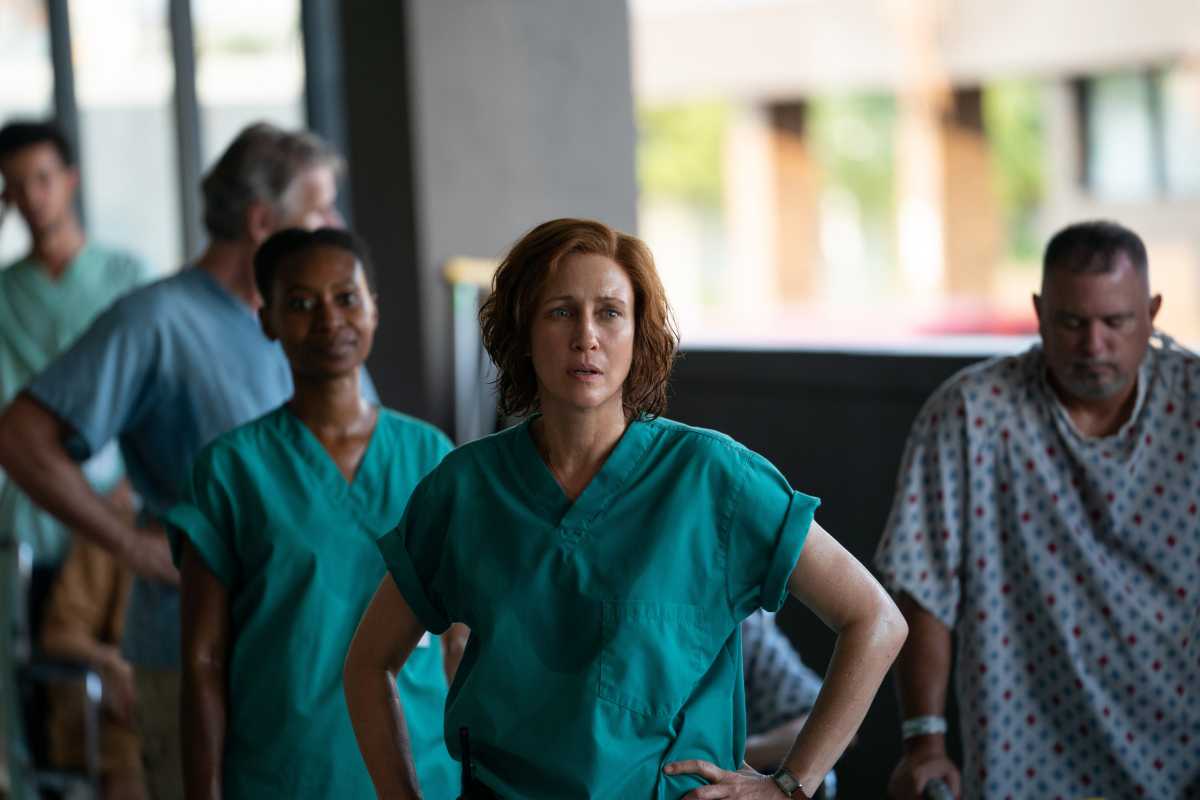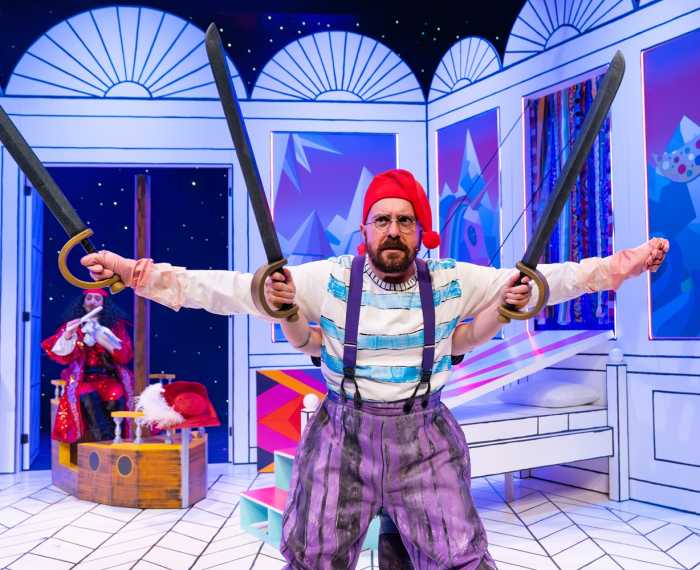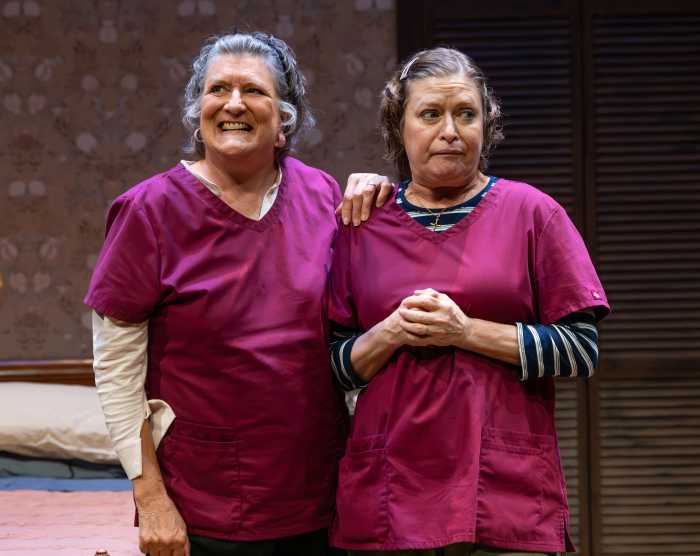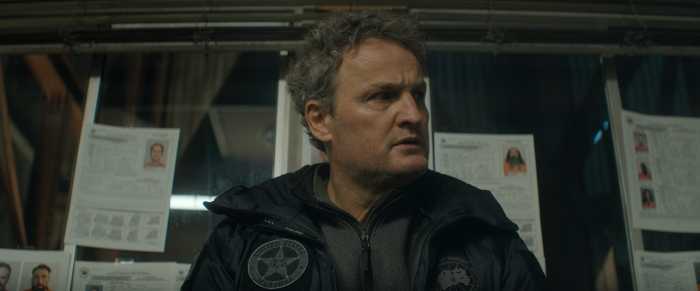When Hurricane Katrina struck New Orleans in 2005 and devastated the city, there was no lack of heart-wrenching stories. Including at Memorial Medical Center — although what exactly happened there, and the decisions that had to be made by medical personnel during that span, is not widely known.
Journalist Sheri Fink set out to figure out what happened at Memorial in late August and early September of 2005 when dozens of bodies were found under unknown circumstances after flooding had subsided. And through her discoveries she wrote the book, “Five Days At Memorial.” Now, the stories of the desperation the hospital felt when the hurricane hit is unfolding on screen on Apple TV+.
Throughout the series, different viewpoints — from doctors, to nurses, to patients and their families — are shown. And what’s really riveting is the idea that essentially with no plan, no help and virtually no hope on the horizon, medical staff had to play God, and the aftermath that unfolded could be considered as catastrophic as the natural storms that brewed outside of the hospital’s walls.
Stars Vera Farmiga, who plays cancer surgeon Dr. Anna Pou, and Cherry Jones, who plays incident supervisor Susan Mulderick, were drawn to the story based on their characters, and the strengths they had to show during their time at Memorial. Both actresses sat down to dig a little deeper into “Five Days At Memorial.”
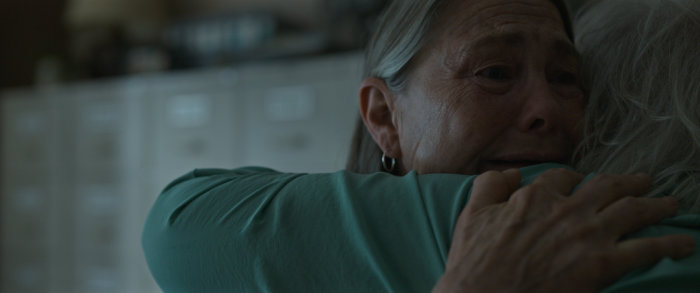
Why sign on with this show specifically? What stood out to you?
Vera: I went by the power, the sheer power of the script alone, and the characterization on the written page — and this is just one of those gifts that come wafting your way. [Anna] is a really complex portrait of an extraordinarily talented woman in extraordinary circumstances facing extraordinary challenges. [She] exhibits strength, vulnerability, stamina, bravery and courage.
It’s a real representation of what it means to be a woman who does get scared, who does get overwhelmed, but perseveres through that with determination and always operates with compassion. I love watching and playing roles that are compassionate and teach compassion and exhibit that, and someone who fights their fear every step of the way. Someone who refuses to submit to failure, who stands up for herself too.
Cherry: I remember so well the first New York Times article about Memorial post-Katrina after the waters had receded and when the bodies were found, and I remember having such sympathy for those nurses and doctors. I hadn’t even taken into account what hospitals were going through during Katrina with all of those people on top of their roofs, desperate to be rescued. And of course, I was stricken with the thought of that loss of life, but also so sympathetic to those doctors and nurses who had to live through that.
When I was offered the part, the character of Susan Mulderick — a woman who had the weight of the world on her shoulders and was in a position that no one on earth would ever want to be in…I didn’t even have to read the script. I said yes.
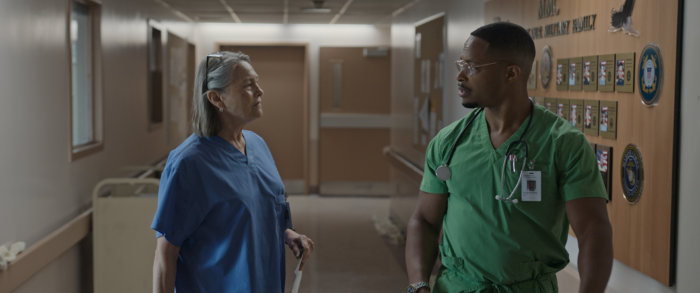
Cherry, tell me more about Susan and the responsibilities that she had. A scene that definitely stands out from the series is in the first episode when Susan is looking through the manual at what to do for disasters, and there’s a guide for everything — except for if the hospital floods.
Cherry: It was interesting. If I’m going to do a dramatization of a book, often I don’t read the book, because we’re not doing the book, we’re doing the dramatization. Our great screenwriters John Ridley and Carlton Cuse have come up with this imaginary dialogue that has nothing to do with what the actual people would have necessarily said. That said, there was a manual and there was everything in that manual — but how to evacuate the hospital once it’s already flooded.
I can not imagine the horror of realizing that there’s just one plan missing and it’s the one you need to get 2,000 people out of a hospital in ten feet of water. One of the things that struck me about the book was the helicopter pad. The hospital had been bought by a corporation recently, and the corporation the year before Katrina had spent $125,000 to insure up the pad so it wouldn’t fall down on people. Not to make it serviceable, but to keep it from falling down. Anyway… I’ll stop now because I could go on and on.
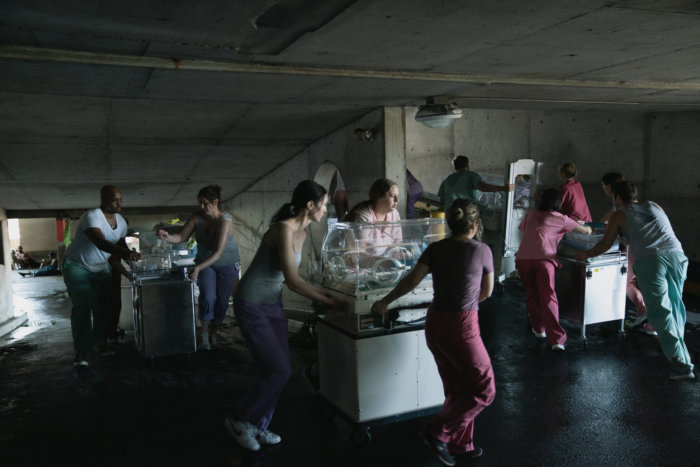
Vera, the interesting part about Anna was the more pressure that was put on her, the calmer she became. Can you tell me a little bit more about who Anna was?
Vera: Anna is a surgeon who is at the top of her game. She is incredibly well respected by her peers and her patients. You want to know what a doctor is like, ask their patients…and with her patients in the book, it’s unanimous. She is the epitome of what you would want in a doctor. Let’s start with the fact that she did not have to be there, she was not on call, she wanted to be there. She could have evacuated with her husband, she could have stayed back at the house — but she wanted to be there. So that’s a testament to her already.
Her mission and her vocation in life is to help people and fix people as a surgical oncologist, and to heal them. Surgeons have to be precise and they’ve got to keep their cool, and I think she did rise to a leadership position because of those qualities. And she was one of the last doctors there and proved to have that stamina. That was her mission. There were 2,ooo people at that hospital and by the end, the entire time her goals were to just keep the patients comfortable and to alleviate suffering as best as she could.
Think about the shock and disgust of knowing there is no help coming. You are abandoned. Good luck taking care of those people, it’s on you.
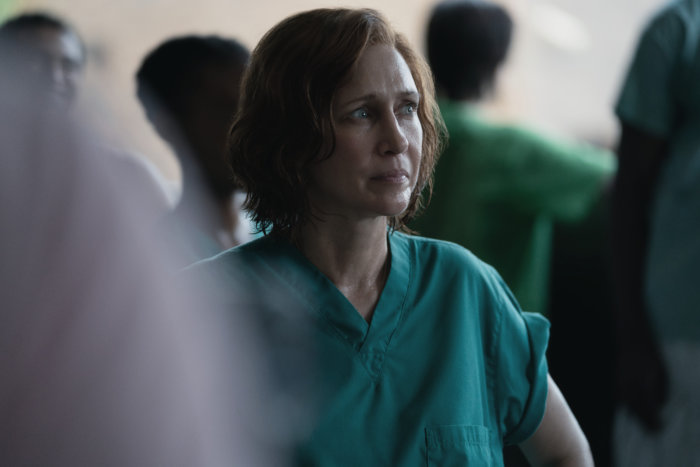
Cherry: And in 110 degree heat. With bodies just naturally degrading. Just 110 degree heat that many days with ill patients.
Vera: And the dementia with lack of sleep in and of itself. I haven’t slept the last two nights and off camera, I’m screaming and crying right now having to do a press conference. But you think about all of these factors that contributed to the conditions— the lack of septic, just the air thick with all of that and the despair of knowing nobody is coming and there is no plan.
Cherry: And if they do come… where will they take you? That was the other thing. So many of these patients ended up on a conveyer belt at the international airport in New Orleans — terribly ill people with no one there to care for them. A lot more decisions like these are coming for a lot of folks… and hopefully that’s what draws this series home.
“Five Days At Memorial” will premiere on Apple TV+ Aug. 12.



